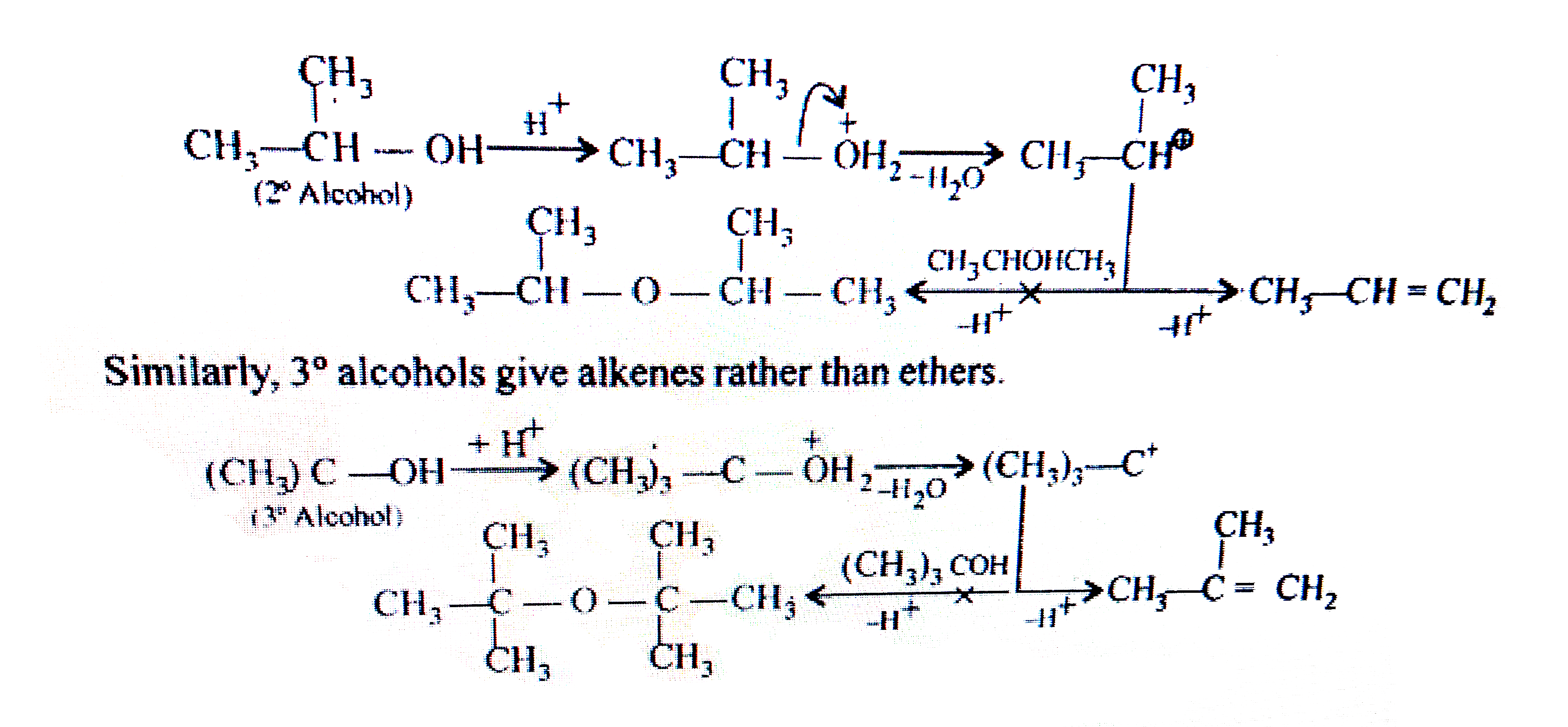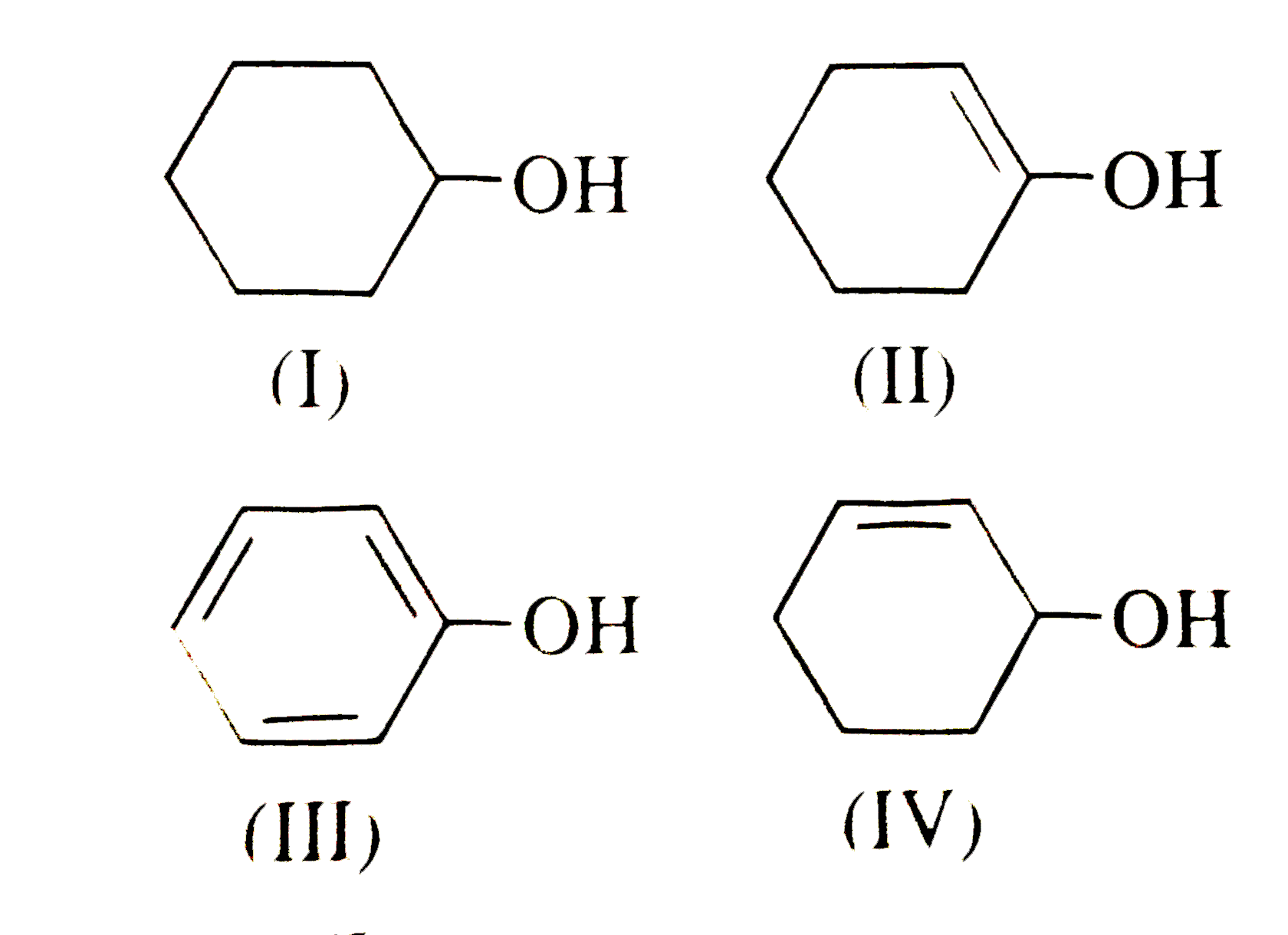Preparation of ethers by acid dehydration of secondary or tertiary alcohols is not a suitable method. Give reason.
Video Solution
Text Solution
Acid catalysed dehydration of primary alcohols to ethers occurs by SN2 reaction involving nucleophilic attack by the alcohol molecule on the protonal molecule.

Under these condition, 2∘ and 3∘ alcohols, however, give alkenes rather than ethers. The reason being that due to steric hindrance, nucleophilic attack by the alcohols molecule on the protonated alcohol molecule does not occur. Instead protonated 2∘ and 3∘ alcohols lose a molecule of water to form stable 2∘ and 3∘ carbocation. These carbocations prefer to lose a proton to form alkenes rather than undergoing nucleophilic attack by alcohol molecules to form ethers.

|
Similar Questions
Knowledge Check
Preparation of diethyl ether by dehydration of alcohol is an:
ASN1 reactionBSN2 reactionCNucleophilic addition reactionDElimination reactionDehydration of tertiary alcohols with Cu at 573 gives
AAldehydesBKetonesCAlkenesDNone of thesePrimary secondary and tertiary alcohols are distinguised by
AOxidation reactionBReduction reactionCDehydration reactionDSubstitution reaction
Account for the following :
Preparation of ethers by acid dehydration of secondary or tertiary alcohols is not a suitable method.
View SolutionPrimary , secondary and tertiary alcohols can be distinguished hy
View SolutionAcidic dehydration of the following alcohols is in the order :

View SolutionPrimary secondary and tertiary alcohols are distinguised by
View SolutionPrimary, secondary and tertiary alcohols are distinguished by
View Solution